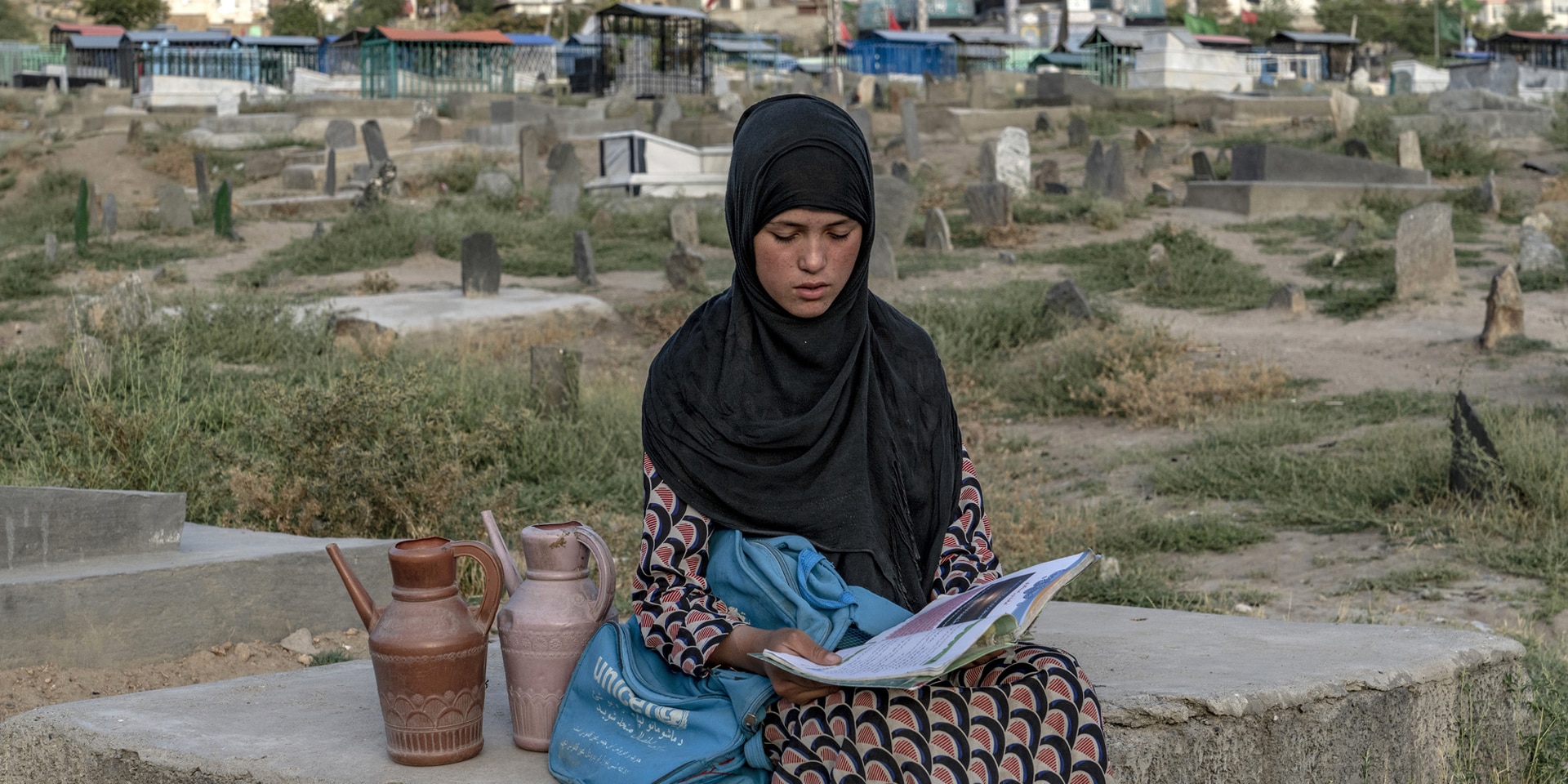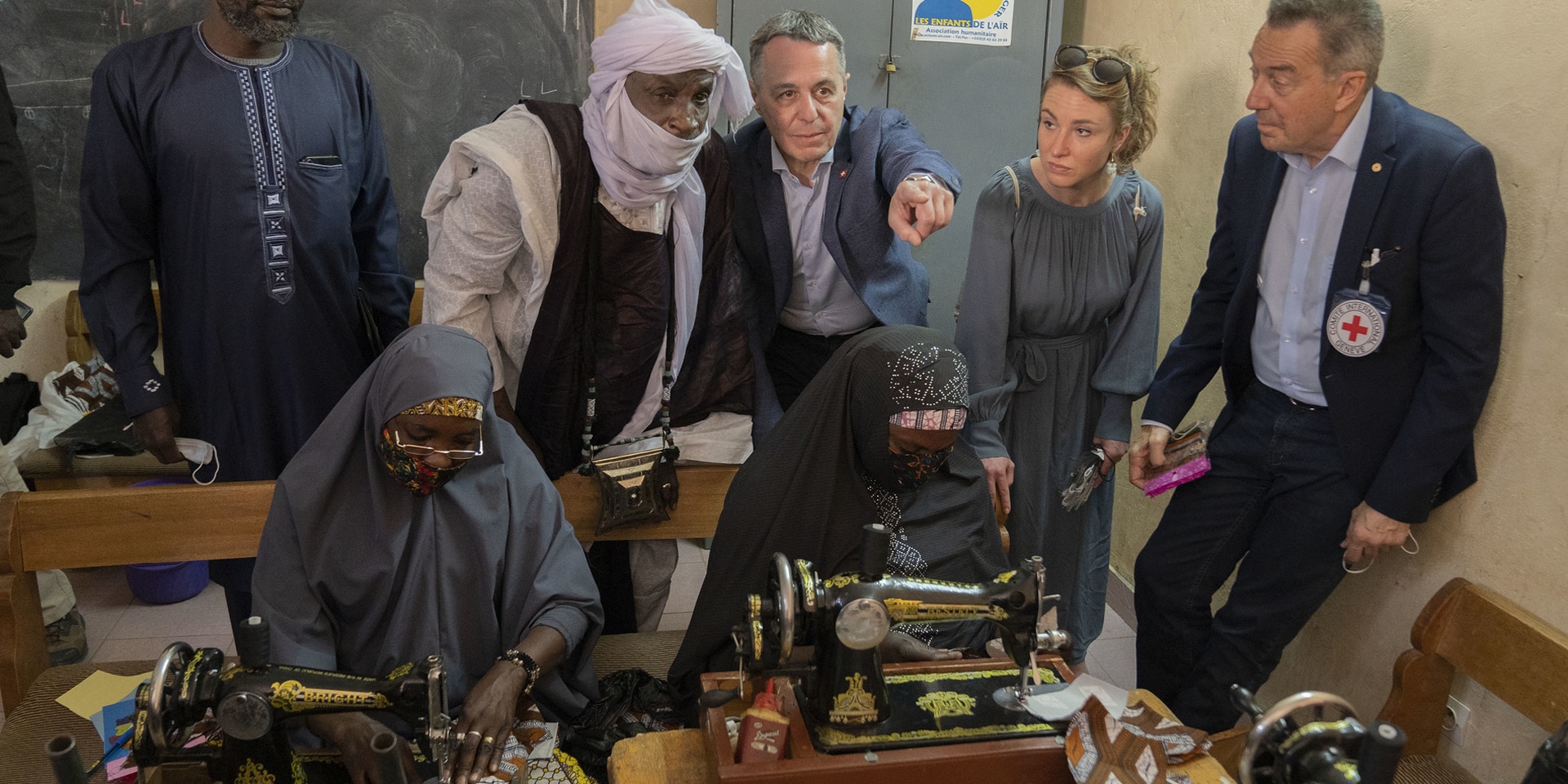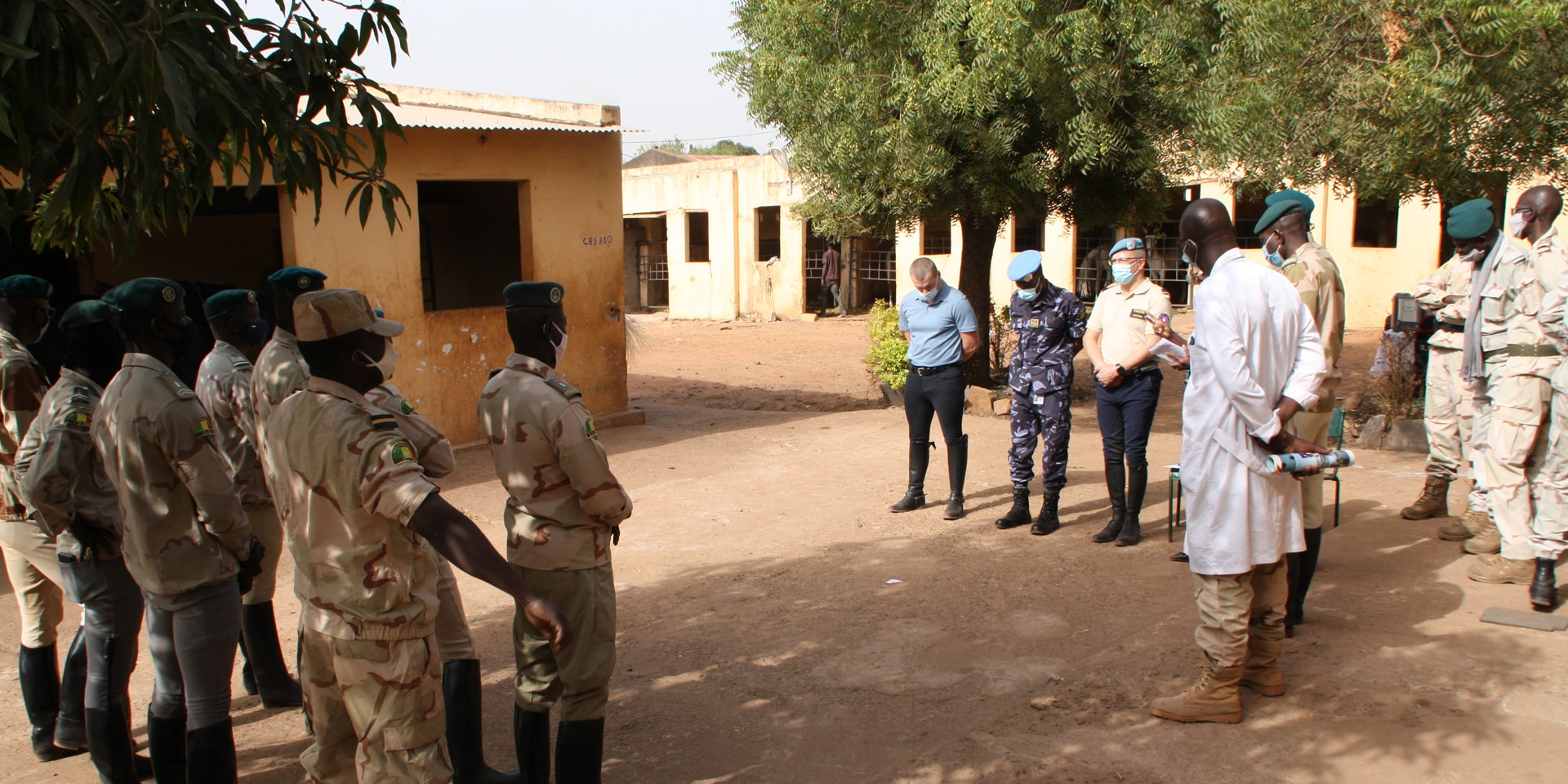Ignazio Cassis reaffirms Switzerland's support for the people of Yemen
Members of the international community, which is continuing to provide financial support for the humanitarian response to the crisis in Yemen, joined the pledging event co-hosted by the governments of Sweden and Switzerland and organised in conjunction with the United Nations Office for the Coordination of Humanitarian Affairs (OCHA).
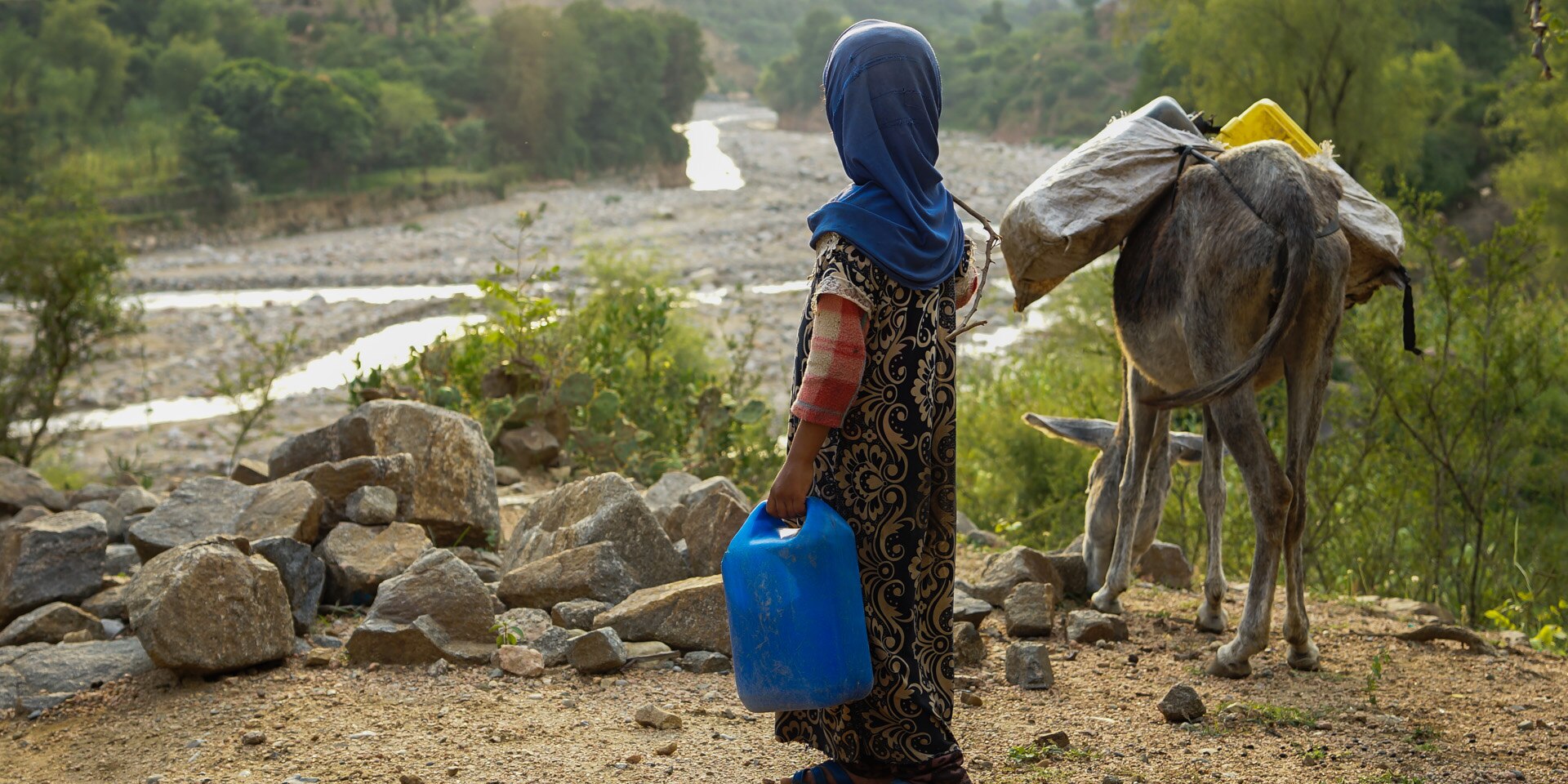
With 4.5 million internally displaced persons, Yemen is in the throes of a large-scale migration problem. © SDC/Hayat Al Sharif
Since the armed conflict erupted in 2015, the situation in Yemen has become one of the world's worst humanitarian crises. Over 21 million people – two thirds of the Yemeni population – now rely on humanitarian assistance. With 4.5 million internally displaced persons, the country is also in the throes of a large-scale migration problem wreaking havoc on the health and food situation and on schooling.
Economic decline and weakened institutions have debilitated all public services and rendered many basic necessities scarce. Two and a half million children are out of school and over 17 million Yemenis are food insecure. Finally, Yemen is the world's third most climate change-vulnerable country and recent environmental disasters have made the situation of its population even more precarious.
"Yemen's people are expecting our firmest commitment"
Federal Councillor Ignazio Cassis, head of the Federal Department of Foreign Affairs (FDFA), reiterated Switzerland's support for the people of Yemen and called on the international community to continue funding humanitarian aid there. "It is more important than ever that countries step up to support the Yemeni people," he said, adding: "Humanitarian efforts must continue without interruption. If we don't make sure they do, we run the risk of wiping out all the progress made so far and seeing the country destabilised even more."
Switzerland's support represents a long-term commitment. This year, CHF 14.5 million will be donated to humanitarian aid in Yemen. Switzerland's contributions over the past 7 years amount to almost CHF 102 million in total. "Yemeni women, men and children are expecting nothing less than our firmest commitment. This is our collective responsibility," the FDFA's head reiterated at the Palais des Nations.
The aim of the pledging event is to ensure an international financial response commensurate with people's needs in Yemen, to strengthen the cohesion of humanitarian and political actors, to raise awareness of the deteriorating living conditions there, and to stress the importance of respect for international humanitarian law in this context.
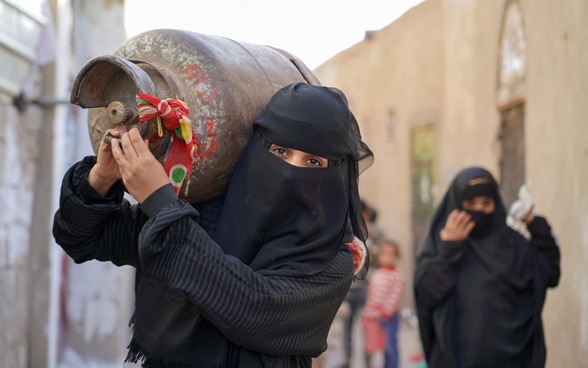
Solidarités International builds community resilience to health risks
In Yemen, over 16 million people lack access to safe drinking water and good sanitation services, with the current water supply network reaching only about 30% of the population. This lack of access to drinking water has resulted in major epidemics such as cholera and acute diarrhoea.
Active in the governorates of Aden, Taiz and Al Hudaydah, the NGO Solidarités International (SI) is a partner of the SDC and is working to strengthen vulnerable communities' resilience to health risks. The goal of SI's project is to engender good hygiene practices thanks to the provision of drinking water, the sanitation of the environment and vector control. So as to run effective and sustainable projects that best meet the needs on the ground, the NGO involves the local authorities of the governorate in its work. As Al Mokha's water and sanitation company's district manager Abdullah Ali Eskander puts it: "In involving the governorate's local authorities on the ground in the design of facilities for the communities, sharing with us the details of the project, including the budgets for activities, the supervision of activities on the ground, SI's work is exemplary. We understand what is going on, how much it costs, and how to support the communities going forward. We are also building up our knowledge of the various aspects of supplying the public with water."
In 2022, Solidarités International helped 987 people to gain access to drinking water and numerous public schools to provide 720 Yemeni pupils with safe sanitation facilities. In addition, awareness-raising communications on disease prevention reached over 88,000 members of affected communities.
What is Switzerland doing in concrete terms to contain the crisis?
Like Yemen, other countries in the Middle East and North Africa (MENA) region are also in the grips of serious armed conflicts that are driving up poverty and social inequality, and eroding democracy and the rule of law in part or in full. This is why the entire region has been set as a priority in Switzerland's Foreign Policy Strategy 2020–23.
Switzerland has an excellent reputation in the MENA region. With its neutrality and expertise in good offices, it is currently playing a prominent mediation role in the international disputes and helping to keep the dialogue open between the parties involved in the conflicts. In Yemen, more specifically, Switzerland is supporting the UN-led peace process.
In Switzerland's MENA Strategy 2021–24, there are two priorities for work in Yemen. Switzerland will promote efforts to restore peace and security and to ensure respect for human rights, while also working to reinforce measures to protect the civilian population. Switzerland will pursue its humanitarian work in the areas of water, sanitation, hygiene and food security. Finally, it will pursue its efforts to encourage all parties to the conflict to respect international humanitarian law.

